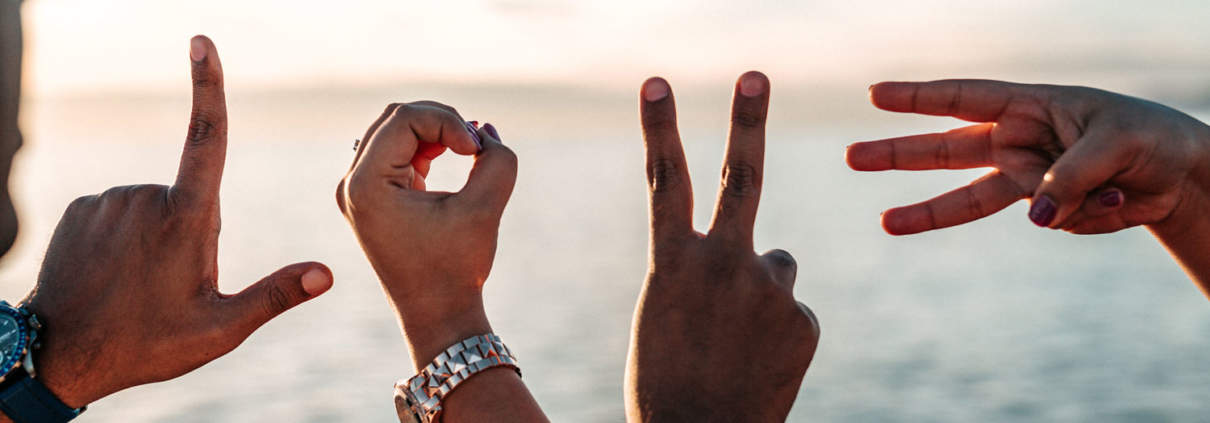“The Camino has no religion, no gender, no colour, no bigotry, no misogyny, no racism. It is a human journey for all who want to do it.”
Camino Frances, also known as The Way of Saint James, is a 775 km pilgrimage across northern Spain.
On March 26, 2016, I packed two small bags, boxed up my bike and hopped a plane to Paris. Lugging a clumsy bike box through the narrow Parisian streets, I took a train to Bayonne in southern France, assembled my bike and rode 5 hours to a town in the Pyrenees mountains called Saint-Jean-Pied-de-Port, where my journey on the Camino began.
The Camino is a secular pilgrimage frequented by people of all faiths, including those with no religious beliefs. On my journeys, I have met people of all genders, ages, sexualities and abilities.
The Camino is for anyone and everyone. It has no religion, no gender, no colour, no bigotry, no misogyny, no racism. It is a human journey for all who want to do it.
Some of the most common reactions among those who have done it are, “The Camino changes you”, “You’re not the same at the end of the Camino as when you started,” or “The Camino helps you know yourself.”
I didn’t come to find God. I came to find myself. I travelled inwards while also conquering raw outdoor spaces.
The Camino is a human experience where we are all walking together and helping each other along the way.
I saw people carrying each other’s’ bags, some getting bananas for each other, some carrying each other.
Lina Nahhas is a Palestinian-Canadian woman and founder of the Sameness Project who coined the term ‘sameness moment’. As she describes it, The Sameness Moment is when you look into the eyes of another human being, and all preconceived notions about culture and identity melt away so you see them as they truly are.
This explains beautifully what it felt like to be a pilgrim among pilgrims. I saw people helping each other all the time. People would go out of their way to help complete strangers. I saw some carrying others when they were too tired or broken to keep going on their own, sharing their last banana or going out of their way to find water for others.
It didn’t matter what we were – Catholic or Protestant, Muslim or Jewish, man or woman, gay or straight – there was no division, there was no we/they, no rich/poor. There was only one thing: we are all human on a human journey together. People were lifting one another up, all the time.
The following is a short story of help on my Camino.
The German Woman
I chose to go on a part of the trip that most pilgrims skip: the road between Burgos and Leon. As there is not much to do along this route, I wasn’t stopping for many breaks. At one point, I ran out of water. I had biked for 4 hours straight and reached a part where there was 35 KM left till the next stop. I was getting dehydrated and needed water. I even considered drinking from a puddle on the road, but I kept it together, talking myself into being okay. I paced myself and kept moving, trying to expend as little energy as possible.
The last 10 km had me worried. I was lightheaded and felt like passing out. Out of nowhere, I saw a woman looking around. I stopped and asked her for water. She gave me a bottle and I guzzled it down without thinking until I realized there were only a few sips left. I asked her if it was ok to finish it and she said yes.
I finished the water and thanked her, gave her a hug and asked her if she wanted company for the next 7 km. We walked all the way there together.
I learned all about her and the reason she was walking. She waited until we reached the hostel and then ran to the water, as I did. That is when I realized that she had given me all she had. I felt so blessed and, for that brief moment, I had so much hope for humanity.
The Jewish American Woman
I’m a proud Canadian, but as I mentioned, my origins are Lebanese. Growing up in Lebanon, you don’t hear much about Jewish people. When I moved to Montreal, I had my first bagel, I ate smoked meat and I made friends with Jewish people, I owe a lot of opportunities in my life and career to my Jewish friends. Sameness. The more I mingled with these people I had been discouraged from mingling with, the more I understood that we shared the same hopes, dreams and aspirations. Even the same worries and concerns.
I met a Jewish woman from the US on one of my Camino journeys. She was so friendly and we enjoyed each other’s company so much that I decided to stay behind an extra day with her.
Halfway through the day, I started to feel sick and realized I hadn’t eaten since the day before. She gave me some of her food to eat. It was a cheese sandwich and only after I finished eating did I realize it was all the food she had. I never got to thank her, but I’ll never forget the kind gesture and great company. It was because of her selflessness that I was able to finish my journey.
The next time you catch yourself falling into ingrained beliefs or stereotypes about any group of people, think twice about it. Ask yourself where your beliefs really come from. Share a meal with that person you think you know so much about. You don’t know anything about anyone until you have a conversation with them. Drink some water, break some bread, communicate and that should open your mind. Otherwise, keep your opinions to yourself.

The Spanish Guy
On day 10 of this trip, I was approaching O Cebrero, 1500 meters above sea level, in the province of Castilla y Leon. I ran into a guy who seemed to be quite the athlete. At that point on the mountain, I was unable to continue biking. I had to get off and push my bike up. The guy came over and offered to help push my bike. I looked at him, unaccustomed to having a stranger offer help out of nowhere. I almost asked him why, but then, I really did need help.
Now there are two things that surprised me about this moment. The first was how this guy knew that I really did need help. The second was how utterly selfless his move was.
After living in North American cities, you do get to be more hesitant about trusting just anyone with valuable possessions.
But, this wasn’t North America, and this guy wasn’t just anyone. He was a fellow pilgrim.
After almost 30 minutes of him pushing my bike uphill, I asked if I could take over. To my third surprise, he replied, “No, you have done enough. You look tired. I will push your bike to the top.”
We arrived at the top of the mountain, went to a restaurant and I even had to argue with him to at least let me pay for his meal.
I’m much more accustomed to people turning away when they see a homeless person on the street corner or someone who needs help. People who don’t hold doors open for others or give up their subway seat for the elderly. I’m used to people being so self-absorbed that they have no idea what a difference they can make with even the smallest act of kindness. And, after working in the competitive world of marketing agencies, I’ve been on the receiving end of backstabbing and betrayal where people will do anything to get ahead.
But there is so much more to be gained through simple acts of kindness.
Takeaway: Concentrate on the things that make us all human together, rather than the things that make us separate. Look for sameness to connect, not difference. We are all so much more than our religion, culture or gender. We can relate on many levels if our eyes are open to them.

